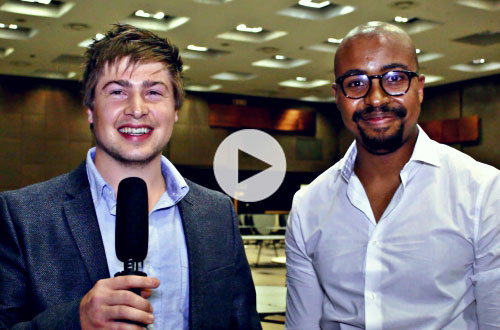
For every Facebook, Twitter or Airbnb, countless other apps never break through the digital clutter.
In a space where apps struggle to not only gain users but keep them, the question is how do South African apps find success?
No one knows the difficulties of striking a cord with your customers and gaining traction better than the home cleaning app, Domestly and the on-demand tutoring platform, Tuta-Me.
The two startups are, however, getting something right. They both recently won awards at the MTN Business App of the Year Awards.
Not only were Domestly the only company nominated in three categories, they walked away with the Best Consumer App award as well as the big prize of the event, the overall MTN Business App Of The Year award.
Tuta-Me scooped the Best Breakthrough Developer App 2016 award.
SME South Africa speaks to the co-founders of both startups about why you shouldn’t dictate to the market if you want to create a winning app and the need for more African solutions to better solve African problems.
By the numbers
Domestly CEO, Berno Potgieter, says the app has created 600 jobs during the last year since launching it in September 2015 and are looking to add another 1500 jobs in the next year.
“We have around 5,500 users and businesses that signed up on our platform since September. The app has been downloaded around the same number of times, with android app being the majority of users,” he says.
According to co-founder and CTO, Dylan Hyslop, Tuta-Me currently has a total of 1,181 unique users, there are 497 students and the number of tutors sits at 401, with a total of 137 appointments.
Building a Winning App
Domestly co-founder and COO, Thatoyoana Marumo, says building the app as a multi-platform marketplace (Domesly is available online or via a mobile app available for iPhone and Android).
“What was important for us is how we packaged our solution. We did not try to dictate what the market should look like, we found what was important for the user as well as the professional,” he says.
Potgieters adds that building an app that could eventually win awards is not easy, “There are so many nights where you’re thinking ‘What the hell are we doing?’ For us, it is about getting out there and taking baby steps [towards our goal].”
Tuta-Me CEO, Abed Tau, echoes the sentiment and says that although there are various ways the best way to get used is to get in front of the user.
“Understand their problem and walk their journey,” he says, “For us, we’re trying to build a brand. We do want to transform education in terms of outside the classroom learning. We want more kids to get access to quality education.”
Solutions by Africans for Africans
“I truly believe that we are in an era where we are looking for African solutions for Africans,” says Tau, “Too many times we were waiting for Facebook, waiting for Uber to come and solve our problems and the reality is no one experiences African problems better than us Africans. We should be coming up with those solutions to better solve our African people’s needs.”
Hyslop says the big success of technology in Africa is its ubiquity, particularly in terms of mobile penetration.
“What is very tricky in the tech world is that everything must be free but you must still run your business and pay your employees, so Domestly and Tuta-me and the likes must be doing that – not only making money to keep their tech up and running and get it accessible but also to create jobs for the tutors for the domestic workers and to create a better ecosystem in South Africa,” say’s Hyslop.






